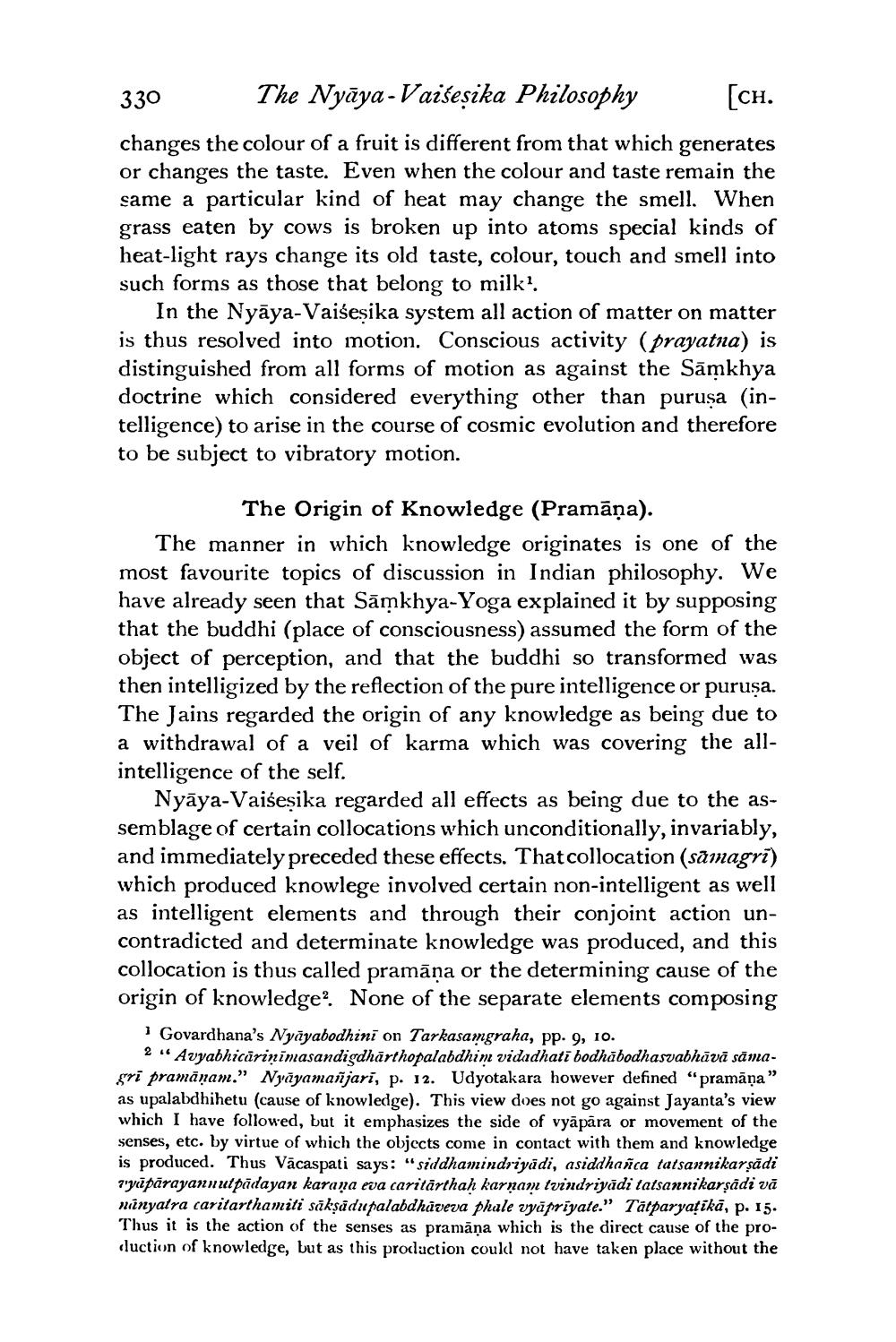________________
330
The Nyaya-Vaiseṣika Philosophy
[CH.
changes the colour of a fruit is different from that which generates or changes the taste. Even when the colour and taste remain the same a particular kind of heat may change the smell. When grass eaten by cows is broken up into atoms special kinds of heat-light rays change its old taste, colour, touch and smell into such forms as those that belong to milk'.
In the Nyaya-Vaiseṣika system all action of matter on matter is thus resolved into motion. Conscious activity (prayatna) is distinguished from all forms of motion as against the Samkhya doctrine which considered everything other than purusa (intelligence) to arise in the course of cosmic evolution and therefore to be subject to vibratory motion.
The Origin of Knowledge (Pramāņa).
The manner in which knowledge originates is one of the most favourite topics of discussion in Indian philosophy. We have already seen that Samkhya-Yoga explained it by supposing that the buddhi (place of consciousness) assumed the form of the object of perception, and that the buddhi so transformed was then intelligized by the reflection of the pure intelligence or purușa. The Jains regarded the origin of any knowledge as being due to a withdrawal of a veil of karma which was covering the allintelligence of the self.
Nyāya-Vaiseṣika regarded all effects as being due to the assemblage of certain collocations which unconditionally, invariably, and immediately preceded these effects. That collocation (samagri) which produced knowlege involved certain non-intelligent as well as intelligent elements and through their conjoint action uncontradicted and determinate knowledge was produced, and this collocation is thus called pramāņa or the determining cause of the origin of knowledge'. None of the separate elements composing
1 Govardhana's Nyayabodhini on Tarkasamgraha, pp. 9, 10.
2 "Avyabhicāriņimasandigdharthopalabdhim vidadhati bodhabodhasvabhāvā sāmagri pramāņam." Nyāyamañjarī, p. 12. Udyotakara however defined "pramāņa" as upalabdhihetu (cause of knowledge). This view does not go against Jayanta's view which I have followed, but it emphasizes the side of vyāpāra or movement of the senses, etc. by virtue of which the objects come in contact with them and knowledge is produced. Thus Vacaspati says: "siddhamindriyadi, asiddhanca tatsannikarṣādi vyāpārayannut padayan karaṇa eva caritarthaḥ karnam tvindriyādi tatsannikarṣādi vā nanyatra caritarthamiti sākṣādupalabdhaveva phale vyapriyate." Tatparyaṭikā, p. 15. Thus it is the action of the senses as pramāņa which is the direct cause of the production of knowledge, but as this production could not have taken place without the




